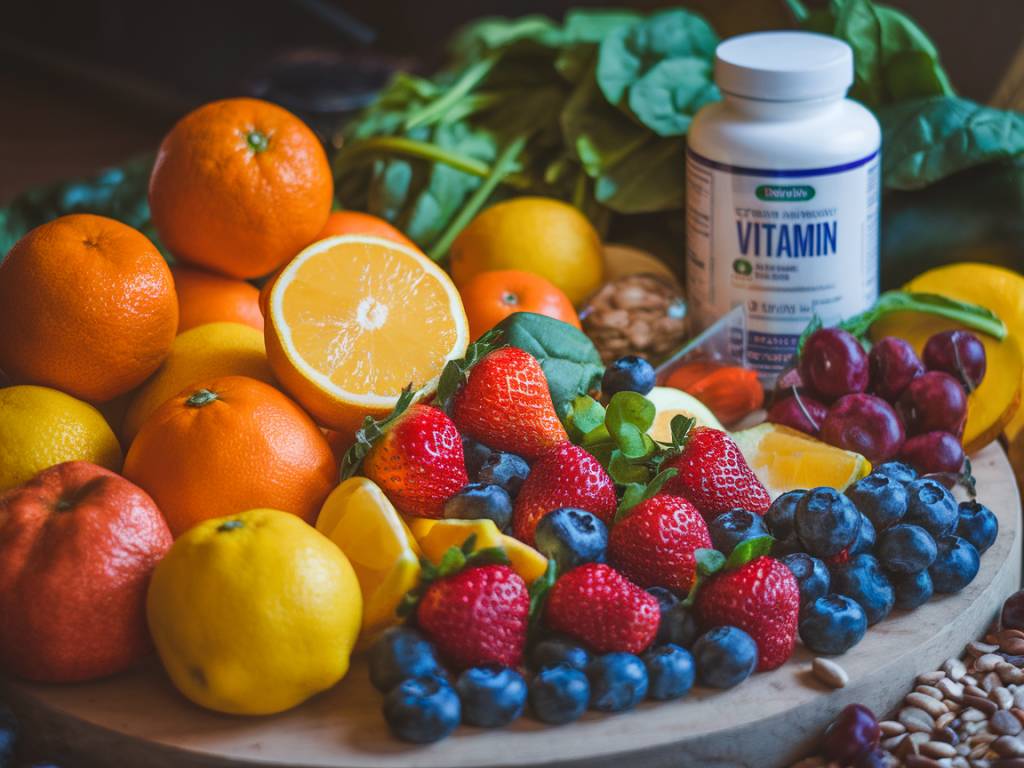The role of essential vitamins for optimal brain health

The role of essential vitamins for optimal brain health
The Connection Between Essential Vitamins and Brain Health
The human brain is one of the most complex and remarkable organs in the body. It controls everything—our thoughts, emotions, and actions—yet it often doesn’t get the same level of attention as our physical health. What if I told you that what you eat plays a profound role in how your brain functions? Intriguing, right?
Your brain requires a consistent supply of nutrients to stay sharp and healthy. Vitamins, in particular, are like the fuel that keeps your mental engine running. Whether you’re looking to boost memory, improve focus, or simply maintain cognitive health as you age, understanding the role of vitamins is crucial. Let’s explore which essential vitamins can truly transform your brain health.
Vitamin B Complex: The Brain’s Best Friend
If your brain had a wish list, vitamin B complex would probably be at the top. This group of eight vitamins works together to support energy production, neurotransmitter function, and overall brain health. Let’s break it down:
- Vitamin B1 (Thiamine): Known as the “anti-stress vitamin,” thiamine is essential for memory, concentration, and protection against neurodegenerative diseases.
- Vitamin B6 (Pyridoxine): This vitamin plays a key role in producing serotonin, dopamine, and norepinephrine—neurotransmitters that regulate mood and reduce stress.
- Vitamin B12 (Cobalamin): Forgetfulness or brain fog? B12 helps in forming red blood cells and maintaining the myelin sheath, which protects your nerves. Low levels of B12 are often linked to memory issues and even mood disorders like depression.
Quick tip: Incorporate foods like eggs, salmon, leafy greens, and fortified cereals into your diet to ensure you’re getting enough Vitamin B.
Vitamin D: The Sunshine Nutrient
Did you know that your brain is packed with vitamin D receptors? It’s true. This “sunshine vitamin” is not only crucial for bone health but also plays a significant role in cognitive performance, particularly when it comes to mood and memory.
Low levels of vitamin D have been linked to depression, fatigue, and a higher risk of developing neurodegenerative conditions like Alzheimer’s. If you’ve been feeling mentally sluggish, it might be worth checking your vitamin D levels. Spending 15–20 minutes in the sun daily or including foods such as fatty fish, egg yolks, and fortified milk can help replenish your levels naturally.
Vitamin E: The Brain’s Protective Shield
Oxidative stress is one of the primary culprits behind cognitive decline. This is where vitamin E shines. As a powerful antioxidant, it protects brain cells from free radical damage. Studies show that vitamin E may even slow the progression of Alzheimer’s disease.
Almonds, sunflower seeds, spinach, and avocados are excellent sources you can incorporate into your meals. Why not make a brain-boosting smoothie with spinach and avocado as a morning treat?
Vitamin C: Fighting Free Radicals
Everyone associates vitamin C with immunity, but its benefits for brain health are often overlooked. Much like vitamin E, vitamin C protects the brain from oxidative stress. It also helps produce neurotransmitters like dopamine and norepinephrine, which play a crucial role in mood and mental clarity.
Think beyond orange juice when it comes to vitamin C. Bell peppers, broccoli, kiwi, and strawberries are all nutrient-dense options to diversify your diet.
Choline: A Key Brain Booster
Technically not a vitamin but often grouped with the B vitamins, choline is a game-changer for cognitive health. It’s a precursor to acetylcholine, a neurotransmitter that promotes memory, mood, and muscle control. Research suggests that choline intake can positively impact brain development in fetuses and protect adults from cognitive decline.
Eggs are one of the richest sources of choline, but you can also find it in beef liver, soybeans, and quinoa. If eggs are already a morning staple for you, congratulate yourself; your brain thanks you!
Practical Tips to Incorporate Essential Vitamins Into Your Diet
Now that you’ve identified which vitamins are crucial for brain health, you might be wondering: How do I make sure I’m getting enough of them every day? Start with these practical tips:
- Prioritize Whole Foods: Focus on whole, nutrient-dense foods instead of relying solely on supplements.
- Meal Prepping: Planning your meals in advance can help you include more brain-friendly ingredients like fatty fish, nuts, and leafy greens.
- Snack Wisely: Swap chips and candy for brain-boosting snacks like almonds, dark chocolate, or apple slices with peanut butter.
- Don’t Forget Hydration: Proper hydration is essential for delivering nutrients to your brain. Pair your healthy meals with plenty of water throughout the day.
Small Changes for Big Results
It’s easy to underestimate the impact of your daily diet on brain health, but small, consistent changes can yield significant results over time. By incorporating key vitamins through nutritious foods, you’ll not only support optimal brain function today but also pave the way for long-term cognitive health.
The bottom line? Your brain is the command center of your body—don’t let it run on empty! Start fueling it with the nutrients it truly needs, and you’ll feel sharper, more focused, and ready to tackle whatever life throws your way.






